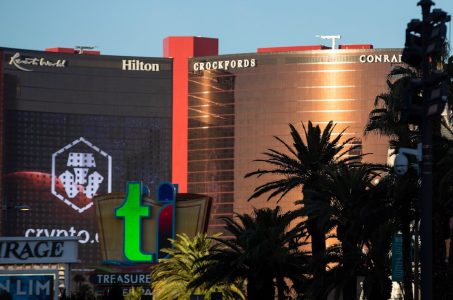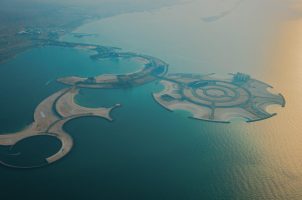Macau Spending Focus Turns to Non-Gaming Investments
Posted on: October 28, 2022, 03:14h.
Last updated on: October 28, 2022, 04:22h.
The past two decades of operator spending in Macau was mainly about building the mammoth, plush integrated resorts that dot the special administrative region (SAR) today. With the retendering process afoot, authorities are demanding concessionaires up non-gaming expenditures.

Citing checks related to the retendering scheme, Credit Suisse analysts estimate Macau operators will each be required to spend $1.27 billion to $2.54 billion on nongaming amenities over the next 10 years — the term of the to-be-awarded licenses.
Macau’s six established operators are Galaxy Entertainment, Melco Resorts & Entertainment (NASDAQ: MLCO), MGM China, Sands China, SJM Holdings, and Wynn Macau. All of those companies submitted bids to renew their permits.
Last month, Genting Malaysia stunned the industry, submitting a proposal to enter the SAR. That bid has been accepted, but that merely means officials are reviewing it. Macau has updated gaming laws to accommodate its six license holders. But analysts and industry executives view the Genting overture as one to be taken seriously, indicating it’s possible the Malaysian conglomerate supplants a current concessionaire.
Non-Gaming Spending Call Not Surprising
Credit Suisse’s forecast for nongaming spending in Macau isn’t surprising, simply because authorities there have been pushing operators for that very thing for several years. China remains opposed to wagering, and is pushing Macau to give businesses and tourists more reasons beyond betting to visit the SAR.
On a very conservative basis by assuming an operator could only recoup 90 percent of operating expenditure (on non-gaming spending),” wrote Credit Suisse analysts Kenneth Fong, Lok Kan Chan, and Sardonna Fong. “The annual net spending would be a contained $12.73 million to $25.47 million per operator, or approximately 1 percent to 2 percent of earnings before interest, taxes, depreciation and amortization (EBITDA).
The nongaming spending mandate could be good news for some operators, and a call to boost related expenditures for others. For example, analysts believe Sands China — a unit of Las Vegas Sands — is most likely to retain its Macau license because of a lengthy track record of nongaming allocations.
“So far, the discussion has been mainly about nongaming investment. We believe there will be one more meeting before the announcement of the provisional gaming licenses by mid-to late-November,” added the Credit Suisse analysts.
Macau Wants Action Now
The Credit Suisse team notes there’s speculation that the Macau government already pressed gaming companies to line up a broad swatch of nongaming events for 2023, indicating officials want to move swiftly in terms of awarding licenses.
Those events could include meetings, incentives, convention and exhibition (MICE), as well as offerings geared toward leisure travelers.
“We believe a line-up of world-class events will enhance the sustainability, uniqueness and attractiveness of the sector,” concluded the Credit Suisse analysts. “It is much better than building more casinos.”
Related News Articles
Thailand Casinos Could Nibble at Singapore Gaming Revenue
Resorts World Las Vegas Sets Profit, Sales Records
Wynn Trademarks Confirm ‘Strip’ Verbiage for UAE Casino
Venetian Macau, Marina Bay Sands Most Profitable Casinos
Most Popular
Mirage Las Vegas Demolition to Start Next Week, Atrium a Goner
Where All the Mirage Relics Will Go
Most Commented
-
Bally’s Facing Five Months of Daily Demolition for Chicago Casino
— June 18, 2024 — 12 Comments
















No comments yet